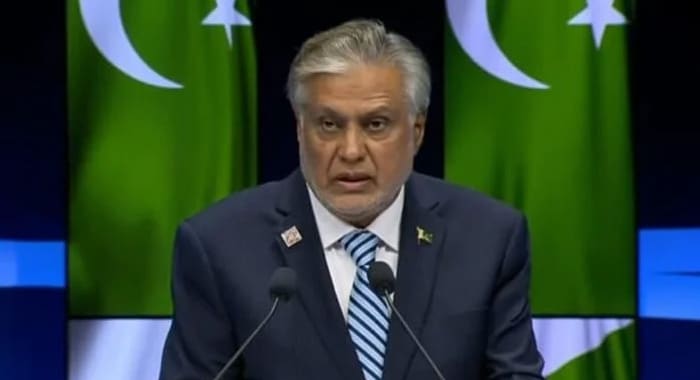Deputy Prime Minister and Foreign Minister Ishaq Dar on Thursday announced that a ceasefire agreement between the Directors General of Military Operations (DGMOs) of Pakistan and India will remain in effect until Sunday, May 18, following mutual understanding between the two sides.
Speaking on the floor of the Senate, Ishaq Dar made it clear that Pakistan will not accept any hegemony in the region. “Discussions will take place on equal footing, and the matter will ultimately be resolved through dialogue. Comprehensive talks with India are now on the table,” he said.
Dar confirmed that there was no request from Pakistan for a ceasefire. “On the morning of May 10 at 8:15am, I received the first phone call from Marco Rubio, who conveyed that India was ready for a ceasefire. I responded that if India is prepared, so are we. I further told him to ensure that India adheres to the ceasefire commitment,” the foreign minister added. He said that after this communication, the Pakistan Armed Forces were informed and a ceasefire was implemented accordingly.
He further revealed that just an hour after Rubio’s call, Saudi Foreign Minister Prince Faisal bin Farhan also reached out to him and discussed the ceasefire. “Prince Faisal said that Marco Rubio had spoken in support of the ceasefire,” Dar added.
The Deputy Prime Minister emphasized that Pakistan had already responded decisively to Indian aggression. “Whatever India did, we have avenged. The Pakistan Air Force has established dominance in the skies. India’s dream of regional supremacy has been buried,” he asserted.
Responding to speculations about the Indus Waters Treaty, Ishaq Dar categorically stated that the treaty cannot be suspended, amended, or terminated. “The President of the World Bank has also issued a statement regarding the Indus Waters Treaty,” he said, reiterating Pakistan’s commitment to international agreements.
The statements come amid heightened regional tensions and efforts by global actors to de-escalate the situation between the two nuclear-armed neighbors.





